ChatGPT and Francophone Misbranding
Tagged:ArtificialIntelligence
/
CatBlogging
/
CorporateLifeAndItsDiscontents
/
SomebodyAskedMe
/
ϜΤΦ
Somebody asked me about the naming of ChatGPT. (Content warning: Remarkably stupid joke, totally skippable by Very Serious People.)
On the naming of things
The Naming of Cats is a difficult matter,
It isn’t just one of your holiday games;
You may think at first I’m as mad as a hatter
When I tell you, a cat must have THREE DIFFERENT NAMES. …
— Opening lines of TS Eliot’s, “The Naming of Cats”, Old Possum’s Book of Practical Cats, 1939.
名は体を表す? (na wa tai o arawasu = names reveal the inner nature of things) Well, not really. But…
See, nobody ever lets me name things. And for good reason! The last time I was allowed to name something, I came up with “bprsvd”: Bayesian Probit Regression with Singular Value Decompositions. (Don’t bother googling; it was used once and then sank without a trace. Any putative Google hits are almost certainly something else.)
So I’ve always been curious about how things get named, and who checks those names. In pharma, we always had this crazy naming consultants with big books of stems in Latin & Greek, who always came up with bogus names. Nobody can pronounce, spell, or remember those names, so really what good are they?
At least with drug names, in the US there are always 2 names (homage à Eliot and his triply-named cats): the commercial name owned by the developing company and a generic name assigned by the US FDA.
- For example, the cancer drug Velcade has a more or less nonsensical name (because it induced with high “velocity” an apoptotic “cascade”).
- But the FDA generic name is just common sense: bortezomib is a “boronate proteasome inhibitor”.
Equally silly, a computer company deep in my CV once had naming consultants name components of a new round of software. They looked at the new hashtable library (why does that even need a name?!) and called it “PlanMaster.” Spreadsheets were the only kind of table they vaguely understood, and those were for planning, right? (It was funny until they submitted their bill.)
So what about ChatGPT?
Somebody asked me recently… well, really somebody told me a story about the large language model AI system ChatGPT currently making so much news. Alas, I have forgotten who that was; if it was you, please get in contact with me. For now, whoever it was has merged in my memory with my cat, the Weekend Publisher – for reasons that will soon become obvious.
The problem, of course, is that ChatGPT and its ilk have a tendency to lie, as we’ve noted previously on this Crummy Little Blog That Nobody Reads (CLBTNR): making up references to scientific papers that don’t exist, trying to break up a reporter’s marriage, threatening to torture and murder another reporter, and so on in the manner to be expected of a BS fountain.
So I was sitting around, somewhat atypically minding my own business. The cat waltzed into the room, and said:
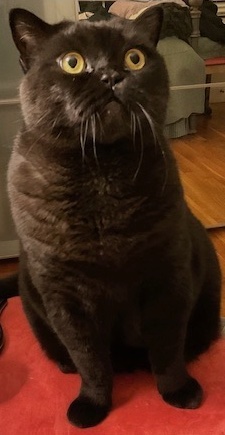
Cat: N’as-tu jamais penser au sujet de ChatGPT en français?
Me: Wait, what? You speak French? Or, for that matter, speak at all?! (And in tu-form, no less?)
Cat: What did you expect, LOLcat? That’s just racist, man!
Me: Umm… ok. Please proceed with… whatever this is.
Cat: See, I’m tired of all you anglo humans bugging me, a francophone cat, about ChatGPT! You think I don’t have a nose of my own?!
Me: Umm… nose?
Unimpressed with the eloquence of my reply, he flounced from the room to attend to some Very Important Cat Business. [1]
Right. Let’s figure out what the little dude was talking about. (Talking?!)
- “Chat” is the easy part: just means “cat” in French. We might be on the right track!
- We infer from the fact that the Weekend Publisher is a little fried on this subject that it’s being used as a noun of direct address.
- In other words, somebody’s talking to a cat. Now, up until today, I would have regarded talking to cats as somewhat eccentric. Nevertheless, here we are talking to cats now. Invoke St Bayes and adjust your priors accordingly.
- In English, we pronounce the individual letters of “GPT” as: “gee”, “pee”, “tee”.
- If we do that with the French pronunciation of letters, we get: “zhay”, “pay”, “tay”.
 Hmpf.
Hmpf.
He’s saying “Chat, j’ai pété.”
The link goes to Google Translate, which Explains It All to those innocent of speaking French.
Go ahead and have a look. I’ll wait. I promise this page will still be here when you get back. No, I’m not gonna tell you; I just… can’t use language like that.
Yep. I knew something about ChatGPT didn’t smell quite right, and now I totally see why the world’s French-speaking cats are somewhat annoyed at being told this over and over. They do have noses of their own, you know.
(NB: French colleagues have informed me repeatedly, over the years, that this sort of humor is juvenile in French, but not especially transgressive the way it would be in English. Just as well.)
That pretty much sums it up. (One of my favorite Oz quips from Buffy, S2E13, “Surprise”.)
The museum of questionable marketing strategies
Still, let’s not be too hard on ChatGPT. It’s not like this hasn’t happened before, both verifiably and to some degree apocryphally:
- In halcyon days of yore, when Lisp Machines
still stalked the land, I happened by great good fortune to work for
one of the companies that made them. It was
a near-perfect job for me:
- the Lisp machine on my desk was a joy to work with;
- my colleagues were all smart, mostly kind, and some very funny;
- and I was working on a project I’d dreamt about for at least a decade, and they let me be more or less in charge of the early development phase.
Alas, our marketing department was not so inspiring. They had real trouble understanding, for the most part, what made the company unique compared to other workstation vendors. Also, some strategies were clearly the result of internal department politics and not any real thought. To wit, the following slogan which appeared in all the trade rags before any of the rest of us saw it (emphasis added):
The future of computing is here.
Is your company ready to step in it?For the benefit of non-native speakers of English, to “step in it” is slightly rural slang for when you walk carelessly in a pasture and step in the, umm… ordure. Suggesting to a potential customer that their employer should buy our setup so they could “step in it” was… suboptimal.
-
In totally different halcyon days of yore, when the Weekend Editrix and I were dating, I visited her family in Japan. I noticed their large (for those days) TV in the living room had a very interesting bit of English branding on it, proudly announcing it was a:
It turns out that “BS” meant it was ready for Broadcast Satellite reception, and apparently “bazooka” was a cute-sounding word for something that could put out a lot of sound. I managed to stifle my giggles – though just barely, given the unintentionally honest description of television in general.
Turns out that particular branding never made it outside Japan.
-
No such list is complete without a couple entries from the apocrypha automobilia.
These stories are not exactly “true”, per se, though they reflect a lot of the managerial groupthink and lack of diversity common to American carmakers of the day. Also, they have such a punch that lack of historicity has been no impediment to their actually being taught in business classes; whether the MBA students could learn from them is somewhat more doubtful.
-
In the 1960s, Pontiac introduced a concept car to be called the Banshee. In those days, a certain market segment wanted muscle cars: power/weight ratio and gearing to accelerate from 0-60mph in a time short enough to suggest either suborbital launch or prompt lethality. (Can you tell I was never a car guy?)
They proposed calling it a banshee, apparently from the phrase “scream like a banshee”, thinking that “scream” must mean “goes really fast”.
Atruth, though: “banshee” is the anglicized spelling of Gaelic baen sidhe, a woman of the Shee (a sort of fae folk). They were said to have the nasty habit of hanging in trees outside your house and screaming all night long to presage a death in your family.
Needless to say, naming a product “you’re gonna die here” was… unwise.
The actual truth of the story is a wee tad more complex:
- On the one hand, yes they actually built prototypes to be called the Banshee. Yes, they were overpowered enough to go really fast.
- But on the other hand, they built only 6 prototypes, all of which were eventually crushed. None made it to the market. The badging was transfered to some other project, about which I know nothing. The Corvette won the internal political battle to be the company muscle car.
So… half true?
-
Anent the subject of muscle cars, we next consider the Chevy Nova. It came in several configurations, from ordinary sedan to muscle car with a bigger engine.
True story: in the 1970s, my elderly aunt drove one. Now, if you look up “little old lady” in the dictionary, there’s probably a picture of her there. Yes, she was little and old, but she was very much a lady: kind, extremely polite, funny, helpful, well-mannered and dignified in the way one would expect. (Can you tell I was dazzled with her as a child? She was an actually sane family member, so always a useful example.)
She lent me her car once. Once. After that I was afraid to drive it: I just tapped the accelerator, and by the time I could say “Whoa!” I was 3 blocks down the street. Apparently she bought it used, not quite understanding the concept of “muscle car”. Give it up for the little old ladies: you might think they’re frail, but you gotta be tough to have survived that long.
So far, so good. The rest of the story is that the Nova wouldn’t sell in Latin America, because “no va” means “doesn’t go” in Spanish, which would be a poor name for a car.
Alas (or maybe the opposite of “alas”?), it is not so.
- A good Spanish speaker would probably say “no yendo” for “doesn’t go”.
- “Nova” in Spanish means both “new” and the exploding star meant in English.
- Apparently it was marketed under another name anyway.
So… mostly false, but a tall tale useful for instruction?
-
And so, we welcome our newfound-friend, the AI ChatGPT, to the museum of failed naming in marketing.
You can see that the ever-so-slightly scatological translation of ChatGPT in French is perfectly in line with the themes of death and ordure here. Si monumentum requiris, circumspice, as hardly anybody says any more.
The Weekend Conclusion
It’s still true that nobody will let me name anything. Now you have some idea why.
Addendum 2023-Jul-14: Photographic Proof
Yes, it’s Bastille Day. No, this post has nothing to do with that. I hope.
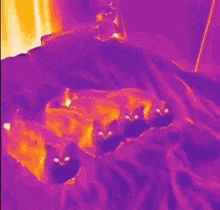 It has come to my attention that the apparently-renowned cat-citizen-scientist on
Mastodon, @alice@lgbtqia.space, has
captured solid documentary evidence of this
sort of phenomenon.
It has come to my attention that the apparently-renowned cat-citizen-scientist on
Mastodon, @alice@lgbtqia.space, has
captured solid documentary evidence of this
sort of phenomenon.
Herewith her infrared camera experiment, showing that 1 in 4 cats is rocket-powered, and thus “Chat, j’ai pété” probably violates some rocketry weapons treaty.
Impressively well-timed, if nothing else.
Notes & References
1: I did not flounce! – Weekend Publisher [2]↩
2: Tais-toi! C’était totalement un “flounce”. Ne lance pas dans une dispute de note de bas de page avec moi! – Weekend Editor ↩
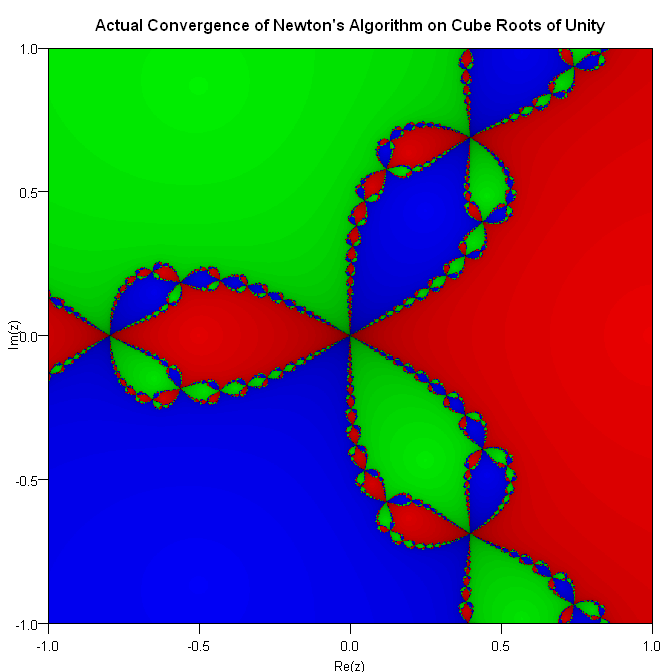


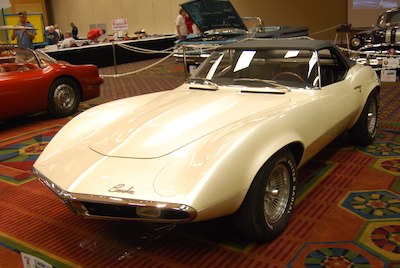

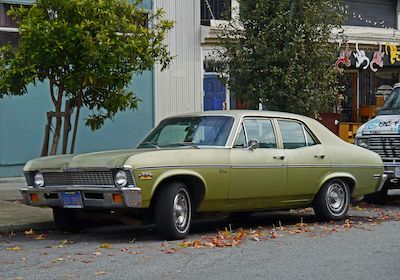
Gestae Commentaria
Comments for this post are closed pending repair of the comment system, but the Email/Twitter/Mastodon icons at page-top always work.